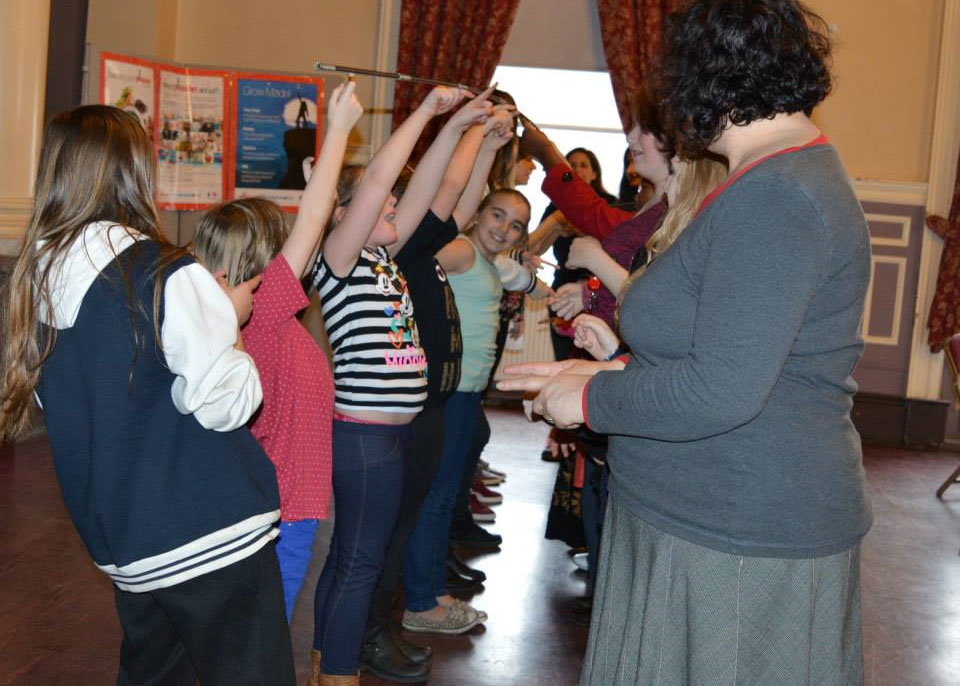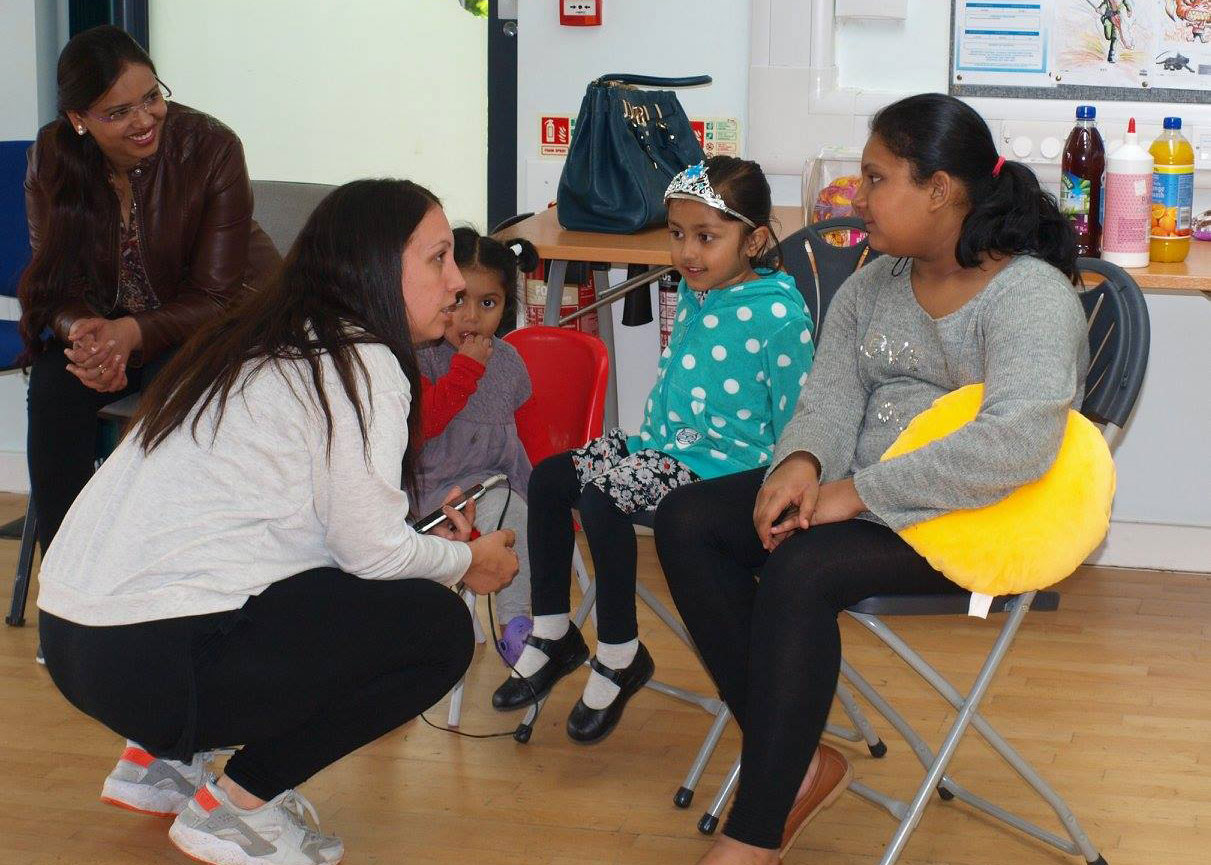Suffolk Girls Self-Esteem Project
PROJECT


Our Workshops

Self-esteem defines a person’s overall sense of their value or worth. A high self-esteem has been associated with being happy, confident and having a positive attitude towards life. However, in today’s society, 6 in 10 girls are concerned with the way they look. According to the Dove Global Girls Beauty and Confidence report, 9 in 10 girls in the UK will not spend time with family and friends, participate in activities outside the house, or try out for a new team or club if they aren’t happy with the way they look. Such factors increase their risk of failing to reach their full potential.

Here at P.H.O.E.B.E we have been working to tackle low self-esteem and promote body confidence in young girls through self-esteem workshops for over 10 years.
In 2021 we developed the ‘Suffolk Girls Self – esteem Project’. This project is centred around delivering workshops regularly in local schools and organisations across Ipswich for girls aged between 5 – 19.
The workshops encourage the girls to develop positive self-esteem through a range of activities which are engaging, insightful, and practical. Each week will bring focus to a different topic, for example: Safe use of Social Media, Reframing Negative Talk and How Beauty is Defined. The workshops will give girls a chance to express their feelings and emotions in a safe space surrounded by girls of a similar age and supportive leaders.
We have witnessed first-hand the positive impact and change these workshops can bring.
‘I have learnt that I am beautiful the way I am’ and ‘I have learnt that we should look at our bodies in a positive way’.
Self-Esteem and Body Confidence
WE ALL CHANGE AS WE AGE AND GROW AND WE MUST KEEP UP WITH OUR EVER-CHANGING SELVES

There is no doubt that this journey can be daunting and difficult, but challenge yourself to take this time to accept yourself! There is no such thing as perfection, as we are all unique in our curves, imperfections and beauty. In today’s society, it has become common for people to talk negatively about themselves, in particular their appearance. This negative body talk can make accepting compliments difficult, and talking about what we’re good being seen as boasting or vanity. However, recognising your talents and allowing yourself to value these characteristics is crucial in developing positive self-esteem. Talking about our feelings regarding growing up and the changes we experience is vital, so that we don’t feel confused and can be confident in our abilities to grow into women.



The Role of Social Media

Social media has become an integrated part of many young people’s lives. A 2018 Pew Research Centre survey of 13-17-year olds found that 45% are online almost constantly and 97% use social media platforms, such as Youtube, Facebook, Instagram or Snapchat.
With such a prominent presence within society, we must consider the drawbacks it can have. Research conducted by the Royal Society for Public Health asked 14-24-year olds in the UK, how they considered social media platforms on their health and wellbeing. The survey found that Snapchat, Facebook, Twitter and Instagram all resulted in increased feelings of depression, anxiety, poor body image and loneliness. Similarly, the Centre for Mental Health published a briefing outlining potential risks to young people, which included: unhelpful comparisons, jealousy and bullying. From the research, we can see that social media is affecting how our young people value themselves. Feelings of poor body image, unhealthy comparisons and jealousy are fuelled by unrealistic and unachievable portrayals of beauty. These portrayals have created a distorted definition of beauty, one which solely focuses on physical appearance. It is therefore imperative for girls to widen that definition of ‘beauty’, to include attributes that go beyond just physical appearance, such as intelligence, kindness and self-worth. As a society, we must see past the airbrushed images, and the perfectly posed photos, to recognise that beauty does not exist in one edited form. Beauty is different body types, different skills, different personalities – beauty is individuality. This is one of our core beliefs here at PHOEBE and one which we hope to enlighten our young girls about. We aim to teach girls that there is not one way to be beautiful, to celebrate the attributes that make us all unique and to stop comparing ourselves to others. The only person you should compare yourself to, is you.
Recognising that social media portrays a distorted view of perfection is pivotal in increasing our self-esteem. However, it is also important to recognise that the power of social media is in your hands. You decide what you view, read and follow. We encourage girls to take this control back, to stop indulging in content that makes you feel negatively towards yourself. Unfollow the accounts which portray ‘perfection’ and instead view/read content which explore topics that teach you something new, interests you or simply make you feel positive.

Violence Against Girls

More than half of young women had been sexually harassed at their school, college or university, polling of 1,000 young women aged 14-21 last autumn suggested. One in five said they had received unwanted sexual comments and 8% had been groped, according to the figures from girls’ rights charity Plan International UK.
Whilst there is no single cause for such violence, some of the strongest and most consistent factors are harmful social norms that contribute to gender inequality. Such norms are formed from the shared beliefs and expectations about certain people should behaviour. They include: patriarchal attitudes, domination and control over female’s bodies and rigid gender roles.
Please see below for some examples of such social norms:
1. Sexual Harassment is normal
Dominant patterns around male sexual entitlement over women’s bodies contribute to sexual harassment and other forms of sexual violence.
2. Women experience violence because they are dressed ‘provocatively’
It is common to see communities blaming the actions of women/girls to justify male sexual entitlement and violence. There is often a stigma in place for those who have experienced violence, involving blame on the survivor for abuse
3. All women should become mothers
Violence against women and girls is rooted in the patriarchal power imbalance between men and women, and in the dominant belief that men protect and provide for and have authority over their family and good women prioritise their family’s health and wellbeing.

A helpline and immediate review into sexual abuse in schools have been set up by the government in response to thousands of allegations from students.
Ofsted will additionally be investigating safeguarding in both state and independent schools. The helpline will be run by the NSPCC to both support potential victims and provide advice to children and adults. This includes how to contact the police and report crimes if they wish. The helpline will also provide support to parents and professionals too. To call the helpline, please dial 0800 136 663.
Boosting our Self Esteem
TIPS TO HELP YOU

‘Global self-esteem’ refers to how you perceive yourself as an individual on an overall level, and is usually something girls begin to consider around middle childhood.
How you think of yourself as a person directly affects how you perform in school, how you function in social situations, and in general how likely you believe you are to succeed in all aspects of your life. There might even be certain areas in your life where you feel better about yourself than others, such as academic achievement on one hand, and social relationships on the other. This is referred to as ‘domain-specific’ self-esteem.
Existing research demonstrates how children with low self-esteem tend to be less successful at school, be less accepted socially by their peers and experience anxiety, depression and eating disoders (Mann, Hosman, Schaalma and De Vries, 2004; Beck, Brown, Steer, Kuyken & Grisham, 2001; Muris, Meesters & Fijen, 2003; Harter, 1993; Mann et al., 2004; Muris, Meesters, Van de Blom & Mayer, 2005; Stice, 2002).
Girls change enormously during adolescence, and often self-esteem can suffer. Developing certain healthy habits, recognising negative talk and increasing positive talk can help boost our self-esteem. Please read through the below information detailing some useful tips to help us build our self-esteem.
Say Stop to your Inner Critic
We often experience our own inner critics, it is imperative to say stop to this critic. This can be done by cheating a stop-word or phrase, then refocus your thoughts on something more constructive. For example, planning what you want to eat for dinner.
Be Kind to Yourself
If you find yourself being negative to yourself, stop and think about how you would feel if someone said those things about a loved one. Be your own best friend and extend that same kindness you would give to a loved one to yourself.
Fight Against Perfectionism
Nobody is perfect and trying to achieve perfection will only lead to disappointment and a sense of failure. Remind yourself that life does not always work out like it is portrayed on social media, movies or TV shows. Remember that buying into myths of perfection will only hurt you and the people in your life.
Try Something New
When you challenge yourself to try something new, your opinion of yourself goes up. You don’t need to do something grand, but as long as you try that is something to appreciate about yourself.

